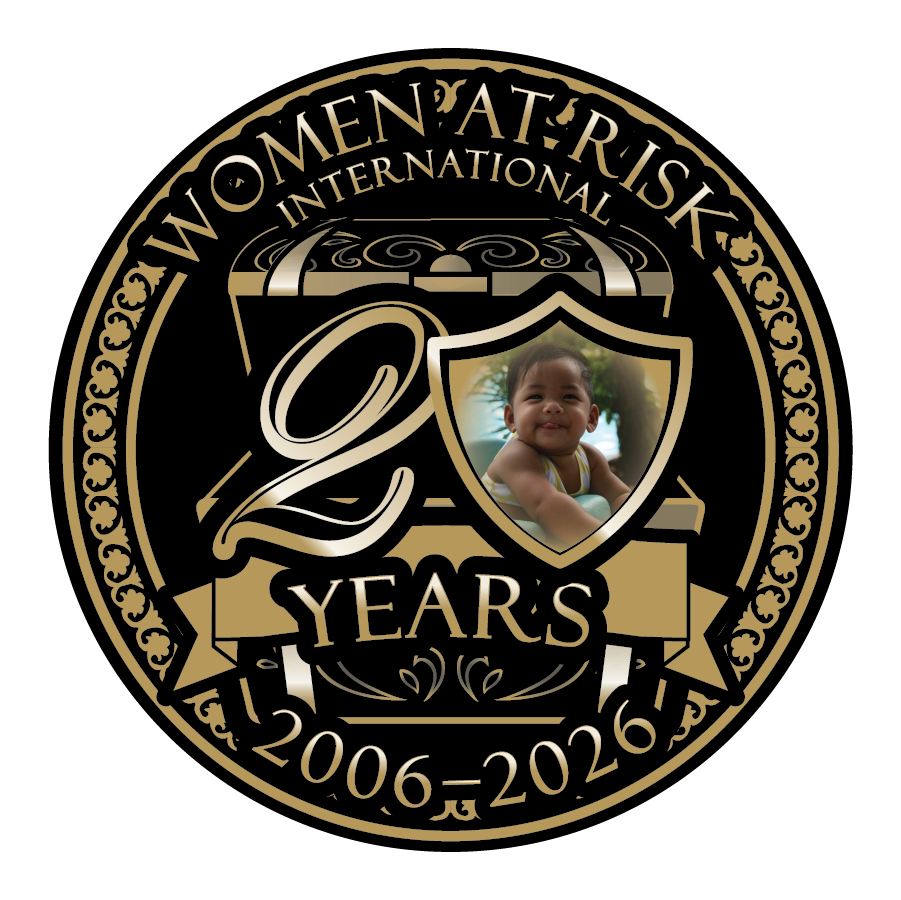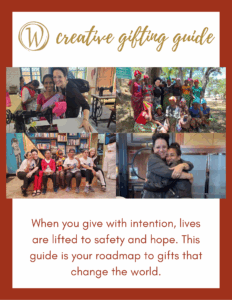January, as National Human Trafficking Awareness Month, serves to not only encourage education and concern about the problem of trafficking, but to drive solutions and civilian involvement. It would be nice to think that once a woman is removed from the trafficking situation, rescue is complete. That is, however, far from being true. Trafficking leaves not only, in many cases, physical injury–but it creates deep mental and emotional chasms in the survivor.
To complete the rescue–to keep a woman from returning to a pattern of exploitation, as well as healing a wounded mentality–each woman needs to know she is worthy, capable, and ready to take on life as a whole person. To that end, Women At Risk, International (WAR, Int’l) operates the United States Training Center (USTC), combatting perhaps the most serious harm of the crime of trafficking–the theft of personhood–and creates new hope, new patterns, and new life.
What is the USTC?
The USTC is one of the most exciting manifestations of WAR, Int’l in our mission to educate, enable, and empower at-risk and trafficked women. The United States government estimates that, every year, over 300,000 minors are at risk of trafficking within the United States, not counting those trafficked into the United States from other countries. Located near WAR, Int’l’s global headquarters in Grand Rapids, Michigan, the USTC is a place where at-risk and rescued American women find meaningful employment and a means by which to rebuild their lives through artisanal work and meaningful support.
How did the USTC originate?
The USTC originated when the Grand Rapids headquarters of WAR, Int’l was only meant to be a home base for operating overseas missions. According to founder and president Rebecca McDonald, “we had women running in to escape their traffickers, and I couldn’t say that we care about this out in the world but not right here with [them]. We had to step into that space.” As a result, the vision for the USTC, a building where women could come to both feel safe and find safe employment, was born.
How does the USTC operate today?
Designed to give as much privacy and dignity to women as possible, the USTC is a multi-purpose space used to support and empower women. There is a kitchen, workshop space for the women employed by the USTC to practice their craft, and separate areas used by WAR, Int’l for a variety of events. Rebecca McDonald considers the USTC to be holy ground in the work that it does for at-risk and rescued women and frequently refers to it as a sacred space.
Women employed by the USTC have meaningful employment and are themselves artisans. Each of these designations has further reaching implications. Not only are they able to earn a living for themselves – and their children if they have them – but it becomes a point of pride that they are able to call themselves artisans and create beautiful pieces of wearable art. Furthermore, following their period of employment at the USTC, they have a legitimate entry on their resumes and acquired skills that they can apply toward their next place of employment.
What is Encompassed Creations?
Encompassed Creations is the brand under which all products at the USTC are created. The Encompassed Creations logo is a compass, with the directional letters at the points of the compass forming the following acronym from the brand’s tagline: Nurturing and Empowering Women toward Sustainability. A wide variety of products are made under this label at the USTC. In addition to jewelry – a significant proportion of the product generated by the women who work in the USTC – Encompassed Creations also includes candles, ornaments, the occasional trinket, and a spa line that includes hand-poured, cold-process soaps, body lotions, bath salts, face wash, and beard oil.
How can I get involved in the USTC’s vision?
There are a variety of ways in which you can promote and support the vision cast by the USTC: namely, you can uplift and support women as they reclaim their lives, livelihoods, and dignity. The best ways to support the artisans of the USTC are to shop their products, spread awareness, and encourage others to do the same.
Hosting a Shop with Purpose Boutique is a wonderful way to support the artisans of the USTC! A Shop with Purpose Boutique is an opportunity to bring the chance to buy USTC products in person to your community without traveling to our brick-and-mortar boutique location in Grand Rapids. WAR, Int’l does everything in its power to make hosting these boutiques – which spread awareness of the USTC’s mission in addition to supporting its artisans in the work of their hands – as easy as possible. For more information, or to sign up to host a boutique, click here.






